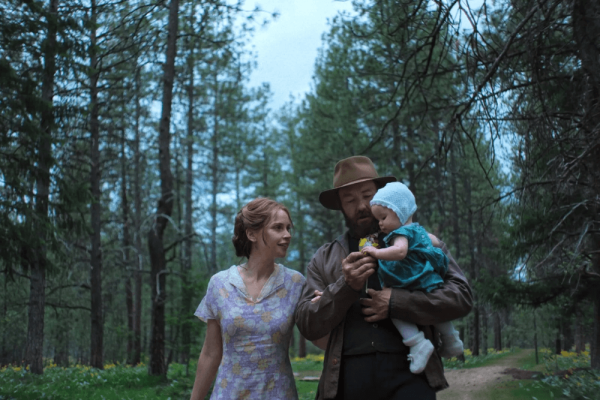Last week, as I listened to the audio-footage of young children in detention centers wailing while being taken away from their parents, my heart broke. I am the daughter of a U.S. foreign service officer and I could not help but think back to when I lived on the border in Nuevo Laredo, Mexico, as one of my family’s assigned posts. My parents would drive my sisters and me across the border every day, to take us to elementary school in Laredo, Texas. I have vivid memories of looking at the Rio Grande River below us and seeing families’ attempting to cross into Texas. I saw intense interactions between people attempting entry and border patrol officers. I recall looking over to my left every time we crossed into Texas, after showing our badge, and seeing dozens of families pulled over for inspection.
At the time, I remember asking questions about what was happening and why. But it became such a regular part of our daily experience that I was regrettably desensitized to it at the age of seven. Over two decades later, I find myself processing what I witnessed back then in the context of what we are seeing in the news now. And I realized that this is nothing new, but we should never become desensitized.
The current outrage around families being detained and separated is important, but we must bear in mind that it aligns with a national history. Our Native siblings had their land taken from them, their families wiped out so the U.S. could be “founded.” My own ancestors had their children ripped away from them during slavery sales. Our Japanese siblings were placed in armed internment camps during the second World War — a history that this nation has often tried to avoid as much as possible. Last year, we saw an attempt to block immigrants and refugees from primarily Muslim nations, commonly known as the “Muslim Ban.”
At the forefront today, we see parents, who have risked their livelihoods to flee danger and poverty, losing their children and freedom upon reaching their destination.
The narrative used to justify this protocol is always around law and safety — how people must legally migrate here, how we must protect our borders from dangerous immigrants, how immigrants are coming here to take our jobs and incite terror upon us.
It is incredibly distressing when law outweighs humanity or justifies inhumanity. And if we want to try to use the law of God to justify our actions, then I implore us to examine its full teachings. The glaring scripture that comes to mind in this context states, “When a stranger sojourns with you in your land, you shall not do him wrong. You shall treat the stranger who sojourns with you as the native among you, and you shall love him as yourself…” (Leviticus 19:33-34).
There is no day like today to rewrite a new narrative for this country. A narrative that counters our history of oppressing and separating people of color and aligns with the narrative of freedom for which we claim to stand.
Jesus said in Matthew 25:35, “For I was hungry and you gave me food, I was thirsty and you gave me drink, I was a stranger and you welcomed me.” If humanity and compassion are not at the center of what drives us, then what is our purpose? What will it take for us to counter these immoral policies by prioritizing an extended hand of welcome that empathizes with those seeking to make the best life possible for their families? Instead of being the perpetuators of harm that goes so far as to separate children from their parents, how can we be driven by a desire to love? I these questions without knowing the answers. I am asking us to imagine and create a reality that we have yet to fully see.
The root of this issue is “othering” our immigrant siblings, a tactic that commonly used against people of color. We have dehumanized immigrants to represent threats, rather than the human beings who, just like anyone, are seeking to thrive. I never had this experience as a “stranger” residing in countries throughout my international upbringing. My family was most often welcomed into new cities with profound warmth, and an intense invitation to experience their cultures and homes. And I wish the same for our immigrant siblings today.
One of my favorite places to live while growing up was Accra, Ghana because it felt like home. Looking back, I believe that a critical reason behind my sense of belonging was the warmth with which I was greeted from the moment that my family stepped foot off the plane. An airport employee said, “Akwaaba,” with a warm smile, which means “welcome.” I heard that term regularly every time I stepped into a new space. I want to extend that feeling of Akwaaba to our immigrant siblings as they try to navigate life in my home country. If enough of us can operate from that lens, maybe it will be a significant step towards building this nation of humanity, love, and compassion for which we desperately strive.
Got something to say about what you're reading? We value your feedback!






